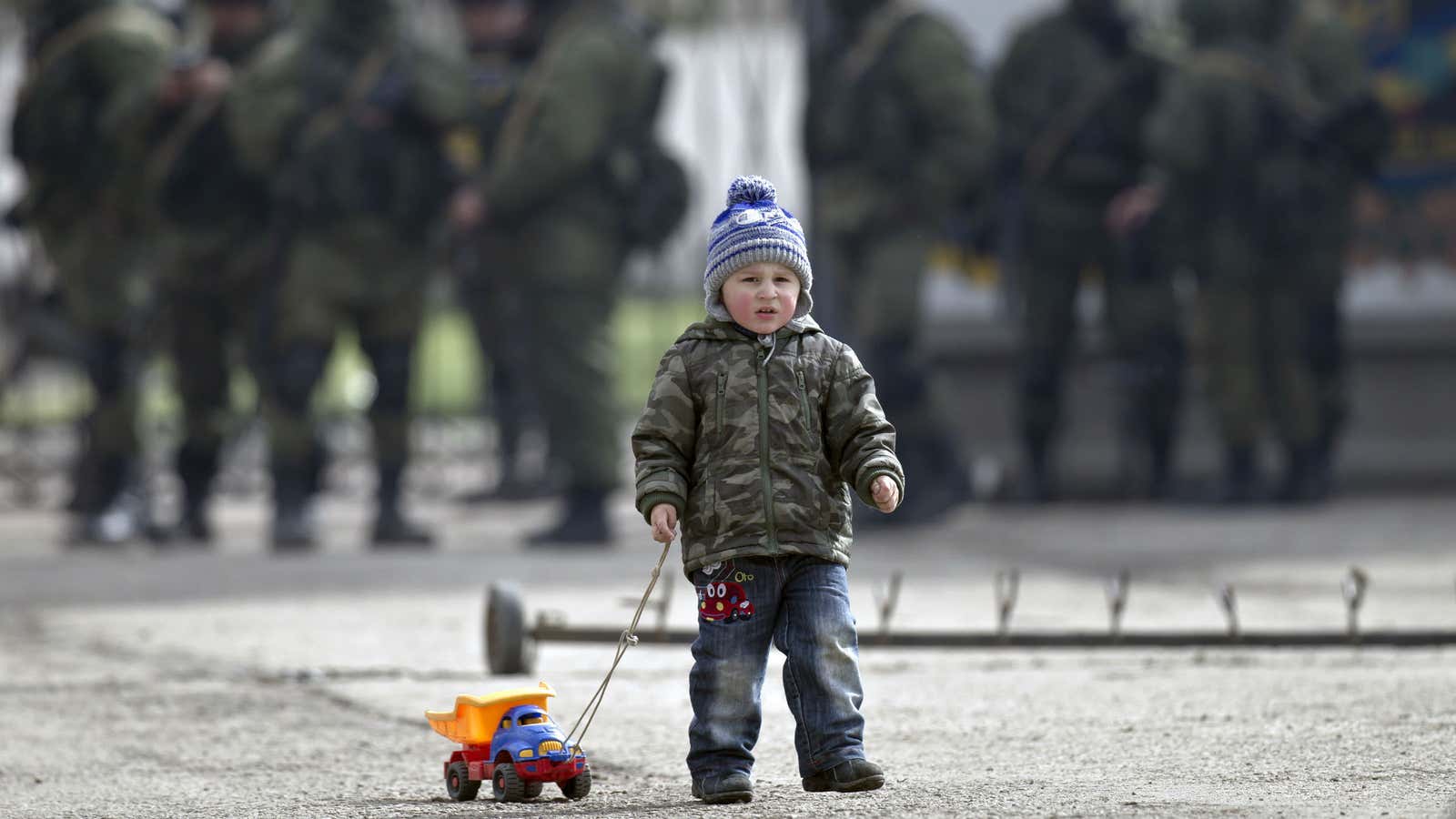Let’s not let a crisis go to waste. Despite the tension in Crimea, now is the perfect time to talk about making a big change in Ukraine—a federalist overhaul. Crises tend to generate a momentum for change—good and bad. By relaxing some of the constraints that make large-scale institutional change difficult in normal times and by adding a sense of urgency, a crisis can catalyze reform. Today, Ukraine is at this critical juncture, and a window is opening for policy and institutional change that has the potential to strengthen the Ukrainian state internally.
Decentralization, or a more comprehensive federalization of Ukraine, is emerging as a possibility to manage both the current instability in the southeast of the country and regional diversity more generally.
For politicians in post-communist countries, the idea of federalism is closely tied to their lived experience of socialist federation collapse (the USSR, Yugoslavia, and Czechoslovakia). Consequently, many of these leaders (and analysts) view autonomy and federalism as a root cause of conflict and state failure. Now, Ukraine offers the possibility to look afresh at the scope of decentralization and federalism as a means to defuse conflict potential and secure state stability.
Westerners should encourage this policy focus: Amidst all the current rhetoric about a new Cold War, we can’t lose sight of tangible issues that must be addressed now to prevent escalation of the situation in Ukraine and the wider region. And this is an issue where there’s common ground between Ukraine, Russia and the US—officials from each nation mentioned reform along federal lines as a viable option in recent days. Russia intends these reforms to guarantee the cultural rights of the Russophones, the voice of the eastern regions in Ukrainian politics and, by extension, stability in relations with Ukraine. The fact that Russia thinks it’s a good idea shouldn’t make us dismiss it for the wrong reasons. This is a huge opportunity. In practice, Ukraine has continuously used informal mechanisms to balance regional interests since independence in 1991, and factions in the center-west or southeast have intermittently dominated national politics. But irrespective of who was in power, leaders actively avoided policies that would have contradicted the interests and sensitivities of other regions, such as an imposition of Ukrainian as the only state language (making Russian an official or second language for the whole country) or the pursuit of NATO integration.
This could be the moment to formalize this hitherto informal regional balancing mechanism. Here are two ways to do it: Ukraine could take a selective approach to appease individual regions through tailor-made arrangements (this model of bilateral center-regional treaties was used in the Russian Federation in the 1990s), or it could pursue a state-wide and hopefully transparent comprehensive decentralization or federalization. In addition to a move to elected regional governors (replacing the current appointees), regional powers could extend to culture (including language and education), economic decision-making, taxation and policing.
The key question: How can Ukraine capitalize on the beginnings of a regional autonomy agreement, moving from a good idea in principle to an actual discussion about different options? The US, several EU members states, and Russia all have expertise in decentralization and federalism and could provide advice. In the first instance, however, Ukrainian politics needs to create the political space to allow for these discussions to take place. Interim Prime Minister Yatseniuk’s address on Mar. 19, in which he held out the prospect of a regional say on culture, education and policing signaled a deeper understanding of the concerns in the southeast.
This momentum needs to be maintained, not least to calm the volatile situation in several eastern cities where too many different actors have taken power into their own hands. In the short-run, the interim government needs to build the political will for state reform and create the forum that will take the issue forward after the presidential elections, ideally a constitutional convention and a state-wide referendum at the end. The latter includes the possibility of popular rejection but would guarantee a democratic process.
After the presidential elections in May, the nitty-gritty of constitutional reform has to be a priority. Currently, Ukrainian politics are operating in a constitutional limbo. The 2004 constitution was supposed to be reinstated as part of the EU-brokered agreement in February. This shift had not been completed by the time Yanukovych fled the country. Moreover, the current constitution of 2010 and the 2004 constitution are ambiguous documents when it comes to the distribution of powers. A constitutional reform process aimed at clarifying the fundamental issues of executive and legislative power would create the space for a discussion of decentralization and federalization.
History tells us that stable democratic federal states—the US, Germany, Switzerland—are born out of crises and conflicts. Let’s hope we can add Ukraine to this list in the not too distant future.
